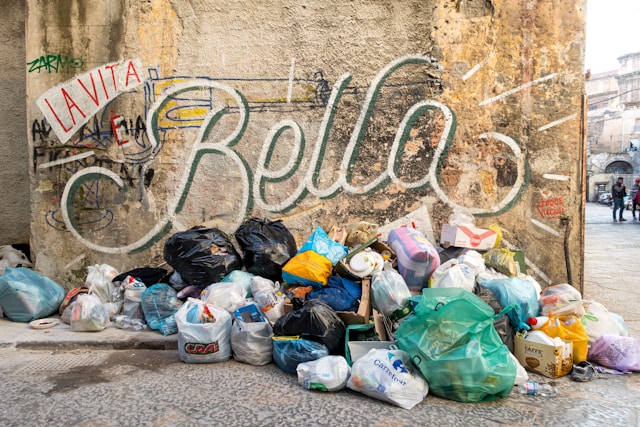Plastic pollution reaches 52 million tonnes per year globally
More than 52 million tonnes of plastic waste are emitted around the world every year, according to a study published in Nature that inventories plastic pollution in 50,702 cities. It concludes that littering is the largest source of plastic emissions in the global North, and uncollected waste is the largest source in the South.

240904 ethel eljarrat plásticos EN
Ethel Eljarrat
Director of the Institute of Environmental Assessment and Water Studies (IDAEA-CSIC)
This new study published on the inventory of macroplastic pollution highlights important aspects of plastic pollution that need to be considered in the ongoing negotiations for the establishment of an International Treaty on Plastics. This study highlights a key point, namely that the management of plastic waste remains an unresolved issue and that we cannot approach the solution to the problem solely on the basis of waste management. Recycling rates are very low, less than 10%, and there is uncontrolled burning of a large amount of waste with the environmental problems that this entails.
The problem of plastic pollution needs to be tackled from different perspectives. The main measure to be taken must be the reduction of plastic production. We cannot continue with this exponential growth in plastic production. The primary objective must be to put a cap on global plastic production. Once production is limited, waste management systems must be improved. But we will not achieve proper waste management if waste generation continues to grow exponentially.
One of the aspects that might also be worth addressing in this work is the problem of toxic chemical additives associated with plastics. Plastics are made up of polymers to which various chemical compounds are added, which can make up to more than 50% of the weight of the plastic. There are more than 10,000 different chemicals associated with plastics, of which more than 60 are characterised as substances of high health risk, some of which are persistent, bioaccumulative and toxic. Hundreds of scientific studies show that common plastic additives are highly hazardous to health. Poor management of plastic waste leads to the dispersion of these toxic compounds in terrestrial and aquatic ecosystems, affecting biota and public health.
240904 Carmen Morales plásticos EN
Carmen Morales
Lecturer at the University of Cadiz, researcher at the Institute of Marine Research (INMAR) and Scientists Coalition for an Effective Plastics Treaty
The paper provides an estimate of plastic emissions from different countries and regions of the world, and although a calibration and validation of the model results is lacking, it presents a somewhat more detailed methodology than previous studies. The main conclusions identify some countries in South Asia, Sub-Saharan Africa and Southeast Asia as major plastic emitters. Ultimately, it serves as a reminder of what is at stake in November in South Korea, where the fifth (and final) session of the Intergovernmental Negotiating Committee to develop an international legally binding instrument on plastic pollution, including in the marine environment, will take place.
Plastic pollution encompasses the triple global crisis: climate emergency, pollution and biodiversity loss. Proposals are often limited to waste management and mitigation measures, however, it is essential to address preventive measures at the beginning of the chain. This means that measures should be agreed that lead to a reduction of non-essential products and simplification of plastic chemistry, with safe and sustainable design of plastic products, accompanied by incentives for profound changes under a holistic approach and a just transition with a focus on human rights and nature. We also need measures to involve all actors, be based on scientific evidence, and be based on the need for a sustainable and safe design of plastics products.
Joshua W. Cottom et al.
- Research article
- Peer reviewed



